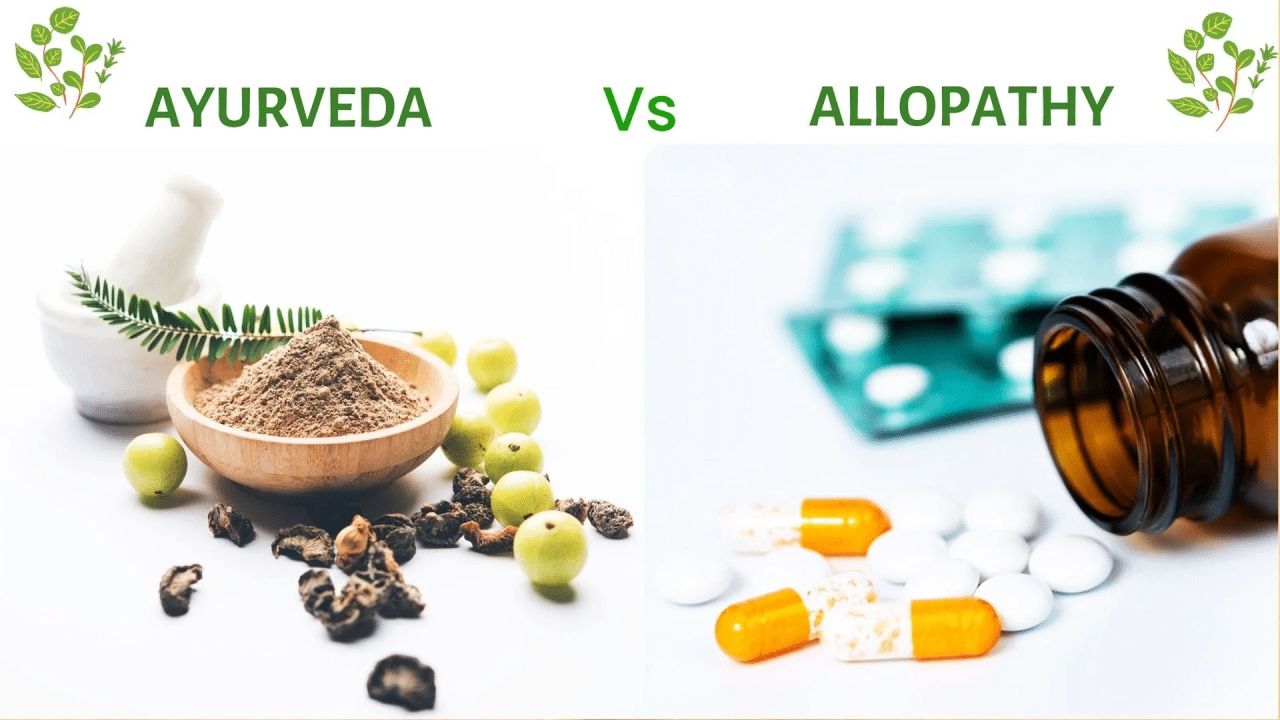Herbal Medicine
Herbal medicine represents the oldest or first medical practice while Allopathy represents the recently developed medical practice. Both systems have their own unique approach to treat & prevent various ailments.
However, there is a recent shift from Allopathic to the “Natural” route for the treatment of major and minor health problems. Often this shift is attributed to the exhaustion and failure of the available allopathic treatments with little to no results.
So, let’s take a closer look at what these practices are and why the push for Herbal route.
Herbal medicine also referred to as Botanical Medicine falls under the category of Alternative medicine. It has been in practice from ancient times where it employs the natural healing properties of plants .Their extracts for the treatment of illnesses and to improve overall health. It is the basis for other practices like Ayurveda and Traditional Chinese Medicine (TCM).
Herbal medicine contains active ingredients many of which are unknown. Some pharmaceutical medications are actually based on a single active ingredient derived from a plant source. However, experts believe that an active ingredient on isolation loses its potency and/or safety as opposed to utilizing the entire plant.
The holistic approach to healthcare offered by Herbal medicine takes into consideration the individual’s lifestyle and environment when drafting a treatment plan that promotes general health and well-being.
Herbal Medicine aims to restore the body to a state of natural balance so that it can heal itself. It is gentler, less invasive and has a lower risk of side effects and hence generally safer when compared to Allopathic medicine. Furthermore, herbal remedies are more accessible and affordable since most of them can be grown in your home garden or easily sourced from local markets.
However, some of the drawbacks associated with herbal medicine include, it’s toxicity potential from contamination of herbs (particularly from the soil and/or water) or misidentification of herbs, both of which can lead to adverse reactions or harmful interactions with other medications. It can also interact with enzymes of the body causing variation in the absorption and efficacy of other drugs. Additionally, herbal remedies are not subjected to the scrutiny or testing that allopathic medications go through which can cause variations in efficacy and potency.
Allopathic medicine
Allopathic medicine also referred to as conventional or Western medicine has taken over the center stage for decades now as the superior medical practice. It involves identification of the factors that cause the ailment followed by their targeted destruction/suppression.
This disease centric approach is centrally focused on managing the symptoms of the disease. It is an evidence-based practice that requires tedious amounts of research and subsequent trials to develop and validate the proposed treatments.
Allopathic medicine has provided breakthroughs in the treatment of a number of illnesses that were previously believed to be incurable.
However, drawbacks often associated with allopathic medicine include, it’s a symptom-oriented approach rather than treating the root cause of the ailment. Furthermore, it typically employs invasive methods to remove the offending agent, the cost of allopathic treatments is significantly high and the side effects associated with it can sometimes be devastating and life altering.
Herbal Medicine Vs Allopathic Medicine Conclusion:
In conclusion, both herbal medicine and allopathic medicine have their own characteristic methodology accompanied by corresponding advantages & disadvantages.
Herbal medicine offers a holistic healthcare approach with fewer side effects and greater accessibility. A longer time may be required to reap its benefits since it aims at eradicating the problem from the root. Therefore, it tends to have the upper hand in treating chronic diseases where more often than not allopathic medicine tends to fall short.
On the other hand, allopathic medicine is backed by scientific research and has flung open the gates for significant medical and diagnostic advancements. This symptom specific treatment approach is better suited for acute conditions. It can help provide quicker relief and is the preferred route for emergency situations especially for those afflicted by debilitating diseases.
Ultimately, the choice between these two systems depends on the preferences of the individual as well as their needs depending on the illness and its severity.
Today a new branch called Integrative medicine is gaining popularity which attempts to address the mental, physical, and spiritual aspects of health. It combines appropriate alternative and allopathic techniques according to the patient, their symptoms and circumstances.
Neutralise Naturals
We at Neutralise Naturals have harbored the benefits of the super-herb Wheatgrass. Keeping in mind the holistic approach, we have formulated products that offer this herb in the form of internal and external applications.
Wheatgrass is packed with:
- Chlorophyll
- Beta carotene
- Glutathione
- The 20 standard Amino acids
- Enzymes
- Fat soluble Vitamins like A, E & K
- Water soluble vitamins like B Complex & C
- Crucial elements like Calcium, Zinc, Iron, Potassium, Selenium and Magnesium.
- Dietary Fiber
It’s chemical and elemental makeup has bestowed upon it wonderful properties like:
- Strong Detoxifier
- Potent antioxidant
- Excellent Anti-inflammatory
- Antibacterial
- Antifungal
- Alkalization
By virtue of these properties, our Wheatgrass products have been proved to be beneficial for people suffering from skin problems like Acne, Hyperpigmentation, Vitiligo, Rosacea, Eczema and Psoriasis.
Apart from these skin issues, ongoing research show that Wheatgrass has promising potential for treating many. They are Anemia, Diabetes, Cardiovascular Disorders, Weight Management, Gut Issues and even Cancer.
References
- Alternative Medicine
Lisa A. Kisling; Regan A. Stiegmann
- https://www.cancer.gov/about-cancer/treatment/cam#:~:text=Alternative%20medicine%20is%20used%20instead,most%20types%20of%20alternative%20medicine
- Herbal versus synthetic drugs; beliefs and facts
Ali Karimi, Maedeh Majlesi, and Mahmoud Rafieian-Kopaei

Recent Comments